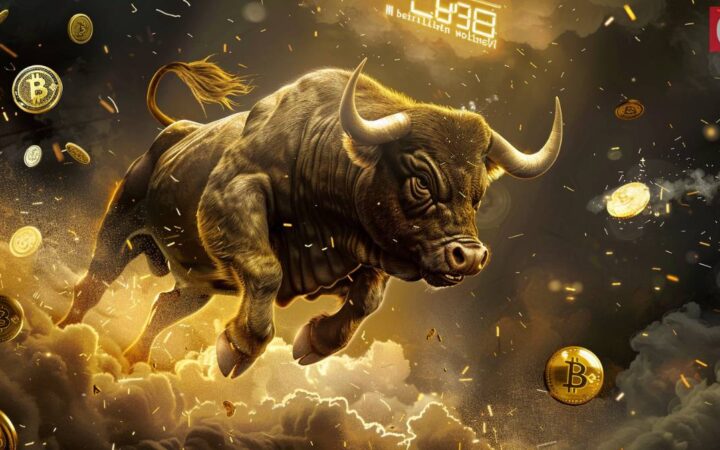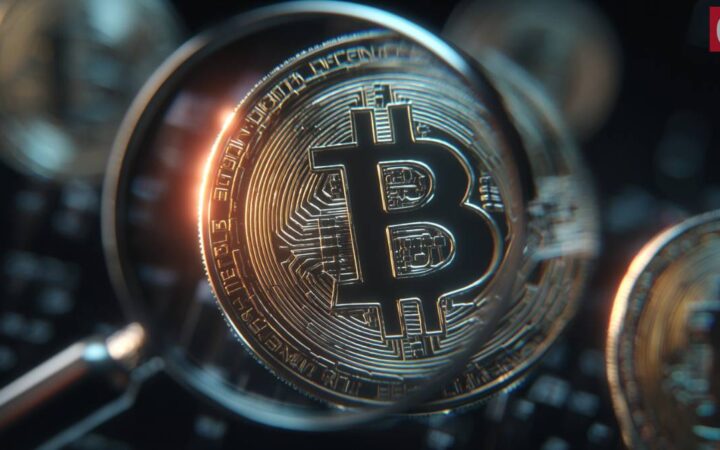
Ethereum (ETH) in Trouble? How Solana (SOL) and Dogecoin (DOGE) Could Lead Altcoin Race

/Lightchain AI/ – The cryptocurrency market is no stranger to disruption, and Ethereum (ETH), once the unchallenged leader in decentralized applications (dApps) and smart contracts, is facing mounting pressure. Despite its long-standing dominance, Ethereum’s scalability issues, high transaction fees, and network congestion have left it vulnerable to emerging competitors like Solana (SOL) and Dogecoin (DOGE).
While Ethereum continues to evolve with its move to Proof of Stake (PoS), Solana and Dogecoin are carving their niches in the blockchain space. With Solana’s lightning-fast transaction speeds and Dogecoin’s increasing adoption as a payment method, the crypto landscape is ripe for change. Adding Lightchain AI (LCAI) into the mix with its groundbreaking technologies like Proof of Intelligence (PoI) and the Artificial Intelligence Virtual Machine (AIVM) could signal the dawn of a new era.
In this article, we’ll explore how Solana and Dogecoin are poised to lead the next crypto wave and whether Ethereum can keep up with these rising stars.
Ethereum’s Challenges: A Legacy Under Pressure
Ethereum is often regarded as the backbone of the crypto industry, powering the majority of DeFi platforms, NFT marketplaces, and dApps. However, as the market matures, Ethereum’s limitations have become glaringly apparent.
Key Strengths of Ethereum
Ethereum stands out with its strong developer ecosystem, featuring a wide array of tools, protocols, and a vibrant community constantly driving innovation. It dominates the DeFi and NFT space, with the majority of decentralized finance applications and NFT projects built on its platform. Additionally, Ethereum’s extensive network of nodes ensures robust security and decentralization, making it a trusted blockchain for developers and users alike.
Ethereum’s Growing Pains
Despite its strengths, Ethereum faces significant challenges. Scalability remains a major issue, as the network can handle only 15 transactions per second (TPS), often resulting in congestion. High gas fees are another drawback, with transaction costs skyrocketing during peak demand periods. Furthermore, while Ethereum 2.0 aims to solve scalability issues, its slow phased rollout allows competitors to gain traction in the meantime.
Solana: The High-Speed Challenger
What Sets Solana Apart?
Solana has established itself as a leading blockchain platform, celebrated for its speed, scalability, and affordability. Leveraging its innovative Proof of History (PoH) mechanism, Solana is capable of processing up to 65,000 transactions per second (TPS) at minimal costs. This makes it a strong competitor to Ethereum and a preferred choice for many developers.
Key Features of Solana
One of Solana’s standout features is its unmatched transaction speed, with an architecture that allows near-instantaneous transactions. This makes it ideal for high-demand applications such as DeFi and gaming. Additionally, Solana boasts extremely low fees, with transaction costs averaging less than $0.01, ensuring accessibility for both users and developers. Its diverse ecosystem further strengthens its appeal, supporting a growing number of DeFi platforms, NFT marketplaces, and gaming projects.
Challenges for Solana
Despite its strengths, Solana faces some challenges. Network reliability has been a concern, with the platform experiencing outages during periods of heavy usage. Additionally, there are decentralization concerns, as critics argue that Solana’s validator network is more centralized compared to Ethereum’s, raising questions about its long-term resilience.
Dogecoin: The Meme Coin with Momentum
From Meme to Movement
Dogecoin began as a joke in 2013 but has evolved into a legitimate cryptocurrency with a dedicated fanbase. Known for its fast transaction speeds and low fees, Dogecoin is increasingly being adopted as a payment method, receiving endorsements from companies and prominent figures like Elon Musk.
Key Features of Dogecoin
Dogecoin offers several advantages that contribute to its growing popularity. Its low transaction fees make it ideal for microtransactions and tipping. Additionally, Dogecoin boasts an active and engaged community that plays a key role in driving its adoption and expanding its use cases. Companies like Tesla and AMC have even started accepting Dogecoin as a payment option, enhancing its real-world utility.
Challenges for Dogecoin
Despite its growing popularity, Dogecoin faces notable challenges. Its primary use case remains limited to payments, which restricts its appeal compared to platforms like Ethereum and Solana that offer broader functionalities. Furthermore, Dogecoin relies on Proof of Work (PoW), which is less energy-efficient and scalable than newer blockchain technologies, posing additional limitations to its long-term adoption.
Lightchain AI: The Wild Card in the Crypto Space
Lightchain AI (LCAI) brings a fresh perspective to blockchain technology by integrating artificial intelligence with decentralized systems. Its features, such as Proof of Intelligence (PoI) and the Artificial Intelligence Virtual Machine (AIVM), could revolutionize how blockchains operate.
Key Innovations of Lightchain AI:
- Proof of Intelligence (PoI):
A consensus mechanism that rewards nodes for performing AI-driven tasks, such as model training and optimization. - Artificial Intelligence Virtual Machine (AIVM):
A computational layer designed for executing AI-specific tasks in real time. - Energy Efficiency:
Lightchain AI’s focus on productive computations makes it a sustainable blockchain solution. - Interoperability:
Designed to work seamlessly with existing blockchains like Ethereum, Solana, and Dogecoin.
How Solana and Dogecoin Could Lead the Next Crypto Wave
Scalability and Speed
Solana stands out with its unmatched transaction speed and low fees, making it highly attractive to developers and users frustrated by Ethereum’s congestion and high costs. On the other hand, Dogecoin’s fast and affordable transactions have made it a popular choice for payments, especially as more businesses begin accepting crypto as a payment method.
Expanding Ecosystems
Solana’s ecosystem is rapidly expanding to include DeFi, NFTs, gaming, and more. With the integration of Lightchain AI, its capabilities could grow even further, enabling AI-driven applications and dynamic NFTs. While Dogecoin’s ecosystem is currently less developed, Lightchain AI’s technologies have the potential to expand its utility beyond payments, creating opportunities for new use cases.
Sustainability
Solana emphasizes energy efficiency, aligning with global trends toward greener technologies. Lightchain AI’s Proof of Intelligence (PoI) mechanism could further enhance its sustainability. For Dogecoin, transitioning from Proof of Work (PoW) to a more sustainable consensus mechanism like PoI could not only improve its scalability but also reduce its environmental impact.
Ethereum vs. Solana and Dogecoin: A Comparative Analysis
| Feature | Ethereum (ETH) | Solana (SOL) | Dogecoin (DOGE) |
| Transaction Speed | 15 TPS | 65,000 TPS | ~30 TPS |
| Transaction Fees | High | Negligible | Low |
| Consensus Mechanism | Proof of Stake (PoS) | Proof of History (PoH) | Proof of Work (PoW) |
| Ecosystem Diversity | DeFi, NFTs, dApps | DeFi, NFTs, Gaming | Payments |
| Energy Efficiency | Moderate | High | Low |
Could Lightchain AI Be the Game-Changer?
Lightchain AI’s innovations could be the key to unlocking the full potential of Solana and Dogecoin while addressing Ethereum’s challenges.
For Solana:
- AI Integration:
The AIVM could enable advanced DeFi tools, predictive analytics, and dynamic NFTs. - Network Stability:
PoI could optimize resource allocation, reducing the risk of outages.
For Dogecoin:
- Expanding Use Cases:
Lightchain AI could introduce AI-driven dApps, fraud detection, and supply chain management to Dogecoin’s ecosystem. - Sustainability:
PoI could transition Dogecoin from PoW to a greener and more scalable model.
The Time to Act is Now
The Lightchain AI presale represents more than just an opportunity – it’s a chance to join a pioneering movement in decentralized AI and blockchain innovation. With early-stage pricing, purchasing tokens now grants access to the ecosystem’s exclusive features, governance rights, and future opportunities.
However, time is of the essence. The next-stage token price is set to increase to $0.0015, and as adoption accelerates, entry points will grow more limited.
How to Participate in the Lightchain AI Presale
Joining the Lightchain community is straightforward:
- Visit the Lightchain Protocol AI Website to access the presale.
- Connect Your Wallet (supports ETH and USDT) and purchase LCAI tokens at the current price.
- Stay Informed by joining the Telegram group and following the project on Twitter/X for regular updates.
Take this opportunity to secure your place in the future of decentralized AI and blockchain technology.
Conclusion: A New Era for Crypto?
The crypto market is at a crossroads. While Ethereum has long been the leader, Solana’s speed and Dogecoin’s payment adoption, coupled with Lightchain AI’s groundbreaking technologies, are reshaping the landscape. Whether Ethereum can maintain its dominance or cede ground to these rising stars remains to be seen.
For investors and enthusiasts, the integration of AI and blockchain, as pioneered by Lightchain AI, represents an exciting opportunity to be part of the next wave of innovation. The future of crypto is evolving, and Solana, Dogecoin, and Lightchain AI are leading the charge.
Website, Whitepaper, Twitter/X, Telegram.
Disclaimer: This publication is sponsored. Coinspeaker does not endorse or assume responsibility for the content, accuracy, quality, advertising, products, or other materials on this web page. Readers are advised to conduct their own research before engaging with any company mentioned. Please note that the featured information is not intended as, and shall not be understood or construed as legal, tax, investment, financial, or other advice. Nothing contained on this web page constitutes a solicitation, recommendation, endorsement, or offer by Coinspeaker or any third party service provider to buy or sell any cryptoassets or other financial instruments. Crypto assets are a high-risk investment. You should consider whether you understand the possibility of losing money due to leverage. None of the material should be considered as investment advice. Coinspeaker shall not be held liable, directly or indirectly, for any damages or losses arising from the use or reliance on any content, goods, or services featured on this web page.




